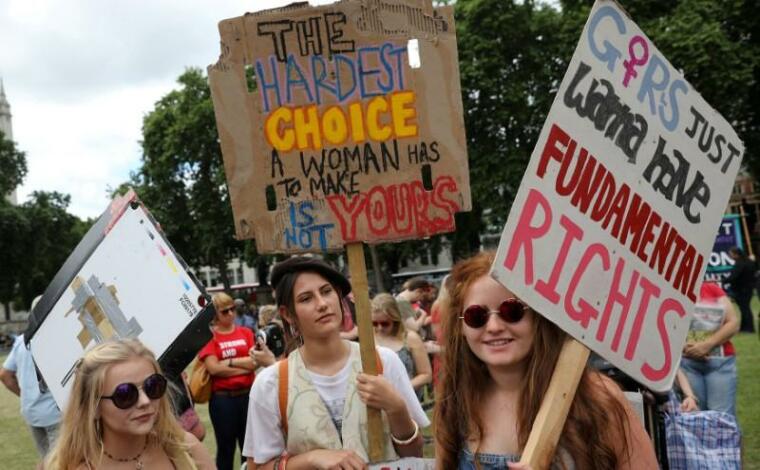UN committee draws criticism for claiming pro-life laws are 'violence' against women

A United Nations committee has drawn criticism from a leading conservative group in the U.K. for claiming that pro-life laws in Northern Ireland constitute violence against women.
In February, the U.N. Committee on the Elimination of Discrimination Against Women (CEDAW) issued a report claiming that thousands of women and girls in Northern Ireland faced "systematic violations of rights" because of a law that prevents them from obtaining abortion in the region.
CEDAW Vice-Chair Ruth Halperin-Kaddari pointed out that thousands of women are compelled to travel outside of Northern Ireland to obtain an abortion, which she said was "cruel, inhuman or degrading."
The report also argued that the U.K. was responsible for the alleged violations of rights because it has allowed Northern Ireland to have its own abortion restrictions.
Roger Kiska of the Christian Legal Center responded to the report on Friday by insisting that there is no international law that affirms the right to abortion.
"Treaty monitoring bodies, such as the Committee on the Elimination of Discrimination Against Women, go beyond their authority and mandate in making declarations like those directed towards Northern Ireland," Kiska stated.
"By inferring such obligations, the Committee is aggressively incurring on national sovereignty and unilaterally creating obligations which have been explicitly rejected by member states during the treaty drafting process. It is a sad day when self-important civil servants try to undermine the laws of a sovereign nation with the sole aim of advancing the culture of death," he continued.
According to The Guardian, abortion became legal in the U.K. in 1967 through The Abortion Act, but the law did not extend to Northern Ireland, where the procedure remains illegal in most cases except when a mother's life is threatened.
Halperin-Kaddari had contended that the criminalization of abortion in the region amounts to discrimination against women because it is a "denial of a service that only women need. And it puts women in horrific situations."
The CEDAW report recommended changing the law in Northern Ireland so that criminal charges would not be brought against women and girls who obtain abortion, as well as those who assist them. It also contended that abortion should be legal in cases of rape, incest and cases of fatal fetal impairment.
In June 2017, the U.K. Supreme Court issued a landmark ruling declaring that the U.K. had to respect the "democratic decision of the people of Northern Ireland not to fund abortion services."
Last year, the pro-life group Both Lives Matter launched an advertisement campaign stating that as many as 100,000 people in Northern Ireland are alive today because of the restrictions on abortion. The advertisement was challenged by proponents of abortion, but it was approved the Advertising Standards Agency and it recently won the U.K.-wide PR award for the campaign.
 Christians don't have to affirm transgenderism, but they can’t express that view at work: tribunal
Christians don't have to affirm transgenderism, but they can’t express that view at work: tribunal Archaeology discovery: Medieval Christian prayer beads found on Holy Island
Archaeology discovery: Medieval Christian prayer beads found on Holy Island Presbyterian Church in America votes to leave National Association of Evangelicals
Presbyterian Church in America votes to leave National Association of Evangelicals Over 50 killed in 'vile and satanic' attack at Nigerian church on Pentecost Sunday
Over 50 killed in 'vile and satanic' attack at Nigerian church on Pentecost Sunday Ukrainian Orthodox Church severs ties with Moscow over Patriarch Kirill's support for Putin's war
Ukrainian Orthodox Church severs ties with Moscow over Patriarch Kirill's support for Putin's war Islamic State kills 20 Nigerian Christians as revenge for US airstrike
Islamic State kills 20 Nigerian Christians as revenge for US airstrike Man who served 33 years in prison for murder leads inmates to Christ
Man who served 33 years in prison for murder leads inmates to Christ


 Nigerian student beaten to death, body burned over ‘blasphemous’ WhatsApp message
Nigerian student beaten to death, body burned over ‘blasphemous’ WhatsApp message 'A new low': World reacts after Hong Kong arrests 90-year-old Cardinal Joseph Zen
'A new low': World reacts after Hong Kong arrests 90-year-old Cardinal Joseph Zen Iran sentences Christian man to 10 years in prison for hosting house church worship gathering
Iran sentences Christian man to 10 years in prison for hosting house church worship gathering French Guyana: Pastor shot dead, church set on fire after meeting delegation of Evangelicals
French Guyana: Pastor shot dead, church set on fire after meeting delegation of Evangelicals ‘Talking Jesus’ report finds only 6% of UK adults identify as practicing Christians
‘Talking Jesus’ report finds only 6% of UK adults identify as practicing Christians Mission Eurasia ministry center blown up in Ukraine, hundreds of Bibles destroyed: 'God will provide'
Mission Eurasia ministry center blown up in Ukraine, hundreds of Bibles destroyed: 'God will provide' Church holds service for first time after ISIS desecrated it 8 years ago
Church holds service for first time after ISIS desecrated it 8 years ago Burger King apologizes for 'offensive campaign' using Jesus' words at the Last Supper
Burger King apologizes for 'offensive campaign' using Jesus' words at the Last Supper Uganda: Muslims abduct teacher, burn him inside mosque for praying in Christ’s name
Uganda: Muslims abduct teacher, burn him inside mosque for praying in Christ’s name